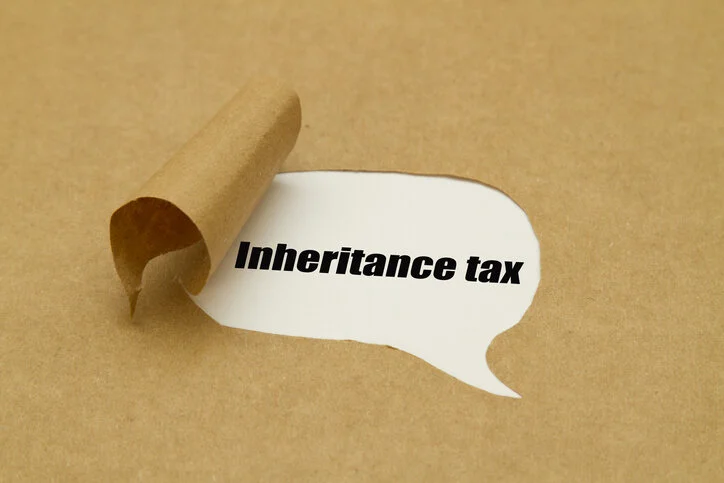Common Inheritance Mistakes and How to Avoid Them
Receiving an inheritance usually brings mixed emotions. You may be grieving that a loved one has passed even as you realize that this windfall can help you realize some long-held dreams. This mix of emotions can reduce your objectivity and increase the likelihood of making inheritance mistakes.
Here are a few of the faulty decisions that people make when receiving an inheritance, plus how you can avoid these pitfalls.
Failing to Create a Budget
Building a budget or updating the one you have will help provide a framework for making informed decisions. You’ll gain a better idea of your income and expenses, and you can see how apportioning your inheritance in one financial area will impact other areas.
If you don’t have a budget, it’s easy to create one, especially if your financial picture isn’t complicated and your inheritance is more modest. Set out how you will use the inheritance—savings, investing, debt payoff, etc.
Cash flow planning like this can give you a tangible framework to refer to, help you avoid spending down your windfall, and stay the course toward your goals.
If your inheritance has added complexity to your wealth picture, consider working with a financial advisor. Our fee-only, fiduciary financial planning firm in Roseville and Folsom, California, helps clients integrate their inheritance into their overall financial picture.
An experienced financial planner can help you plan for the possibilities that your new wealth offers while avoiding pitfalls.
Not Accounting for Taxes
Your inheritance will likely come with tax implications. There could be a step-up in cost basis to understand, distributions from an inherited IRA to account for, and capital gains to plan for.
We suggest you talk with financial or tax professionals, such as a CERTIFIED FINANCIAL PLANNER™ (CFP®) professional or Certified Public Accountant, to assess how taxes will affect your plans. The last thing you want is an unexpected tax bill.
Letting Emotions Cloud Your Judgment
If you’re holding on to a stock your grandmother gave you that’s a sinking ship, you may want to re-evaluate your decision. Research has shown that emotions can hurt investment returns and thus long-term goals.
We understand how hard it can be to part with something that has sentimental value and connects you to the loved one who has passed. But keep in mind that your portfolio should help you reach your goals. You can draw on the inheritance to create an appropriately diversified portfolio over time that helps achieve those goals.
If you are really attached, you might consider selling the bulk of the assets in the portfolio you inherited and maintaining a smaller portion in your loved one’s memory.
Spending Too Much
It’s shockingly easy to use up an inheritance by failing to get a handle on mindless spending. A series of small indulgences can quickly lead to a zero account balance.
That’s why you should decide how much of your money you will spend ahead of time and stick to your budget. Receiving a lump sum of money can make your head spin with all the things you’ve put off buying—it’s important to stay grounded and stick to your plan.
Not Paying Off Debts
One priority you can make after you receive an inheritance is to pay off debts. Whether you have credit cards or student loans, don’t let this opportunity to get debt-free (or close to it) pass you by. Without loans weighing you down, you can enjoy less stress and more financial freedom.
Sharing the Wealth at Your Expense
Generosity is a beautiful thing, but it shouldn’t be to your detriment. It’s natural to want to help make people happy, but first make sure you have a solid foundation for your financial security.
You can make a line item for gifts to friends, family, and charity in your budget to avoid overgiving. Or talk with your financial advisor about how to increase your philanthropy while making sure your financial needs are met.
Failing to Save Enough
Between making long-held dreams come true, helping your family members and friends, and paying off high-interest-rate credit cards, you might forget to pay toward your future.
Carve out a portion of your inheritance for your future self, and that future self will thank you for being forward-thinking. Start with an emergency fund with six months’ worth of living expenses, and then start increasing your contributions toward retirement accounts like a 401(k) or IRA.
Doing It Yourself
While an inheritance can set you up for financial security, it can also disappear almost instantly. Unless you have expertise in finances, investments, taxes, retirement, and estate planning, you might consider a professional team including:
A financial advisor, such as a CFP® practitioner
An accountant
An estate planning attorney
Your financial advisor can work with you to understand your goals and how the inheritance might have changed those goals, building a detailed financial blueprint to help create the future you want. They can also work with your other team members to help ensure they have up-to-date financials and that no details fall through the crack.
Schedule a complimentary, 15-minute call with a fee-only, fiduciary financial advisor today to discuss your personal situation.
This material was prepared by Kaleido Inc. from information derived from sources believed to be accurate. This information should not be construed as investment, tax or legal advice.
Parkshore Wealth Management is a family-owned, independent, fee-only Registered Investment Advisor serving the greater Sacramento area with an office in Roseville, CA. We partner with financially responsible individuals and families who are eager to take positive steps that will allow them to use their money to build the life they desire. The firm is led by Harold Anderson, CFP®, and Daniel Andersen, CFP®, both members of NAPFA, the country's leading professional association of fee-only financial advisors.

